Protecting Pollinators When It Counts
go.ncsu.edu/readext?986947
en Español / em Português
El inglés es el idioma de control de esta página. En la medida en que haya algún conflicto entre la traducción al inglés y la traducción, el inglés prevalece.
Al hacer clic en el enlace de traducción se activa un servicio de traducción gratuito para convertir la página al español. Al igual que con cualquier traducción por Internet, la conversión no es sensible al contexto y puede que no traduzca el texto en su significado original. NC State Extension no garantiza la exactitud del texto traducido. Por favor, tenga en cuenta que algunas aplicaciones y/o servicios pueden no funcionar como se espera cuando se traducen.
Português
Inglês é o idioma de controle desta página. Na medida que haja algum conflito entre o texto original em Inglês e a tradução, o Inglês prevalece.
Ao clicar no link de tradução, um serviço gratuito de tradução será ativado para converter a página para o Português. Como em qualquer tradução pela internet, a conversão não é sensivel ao contexto e pode não ocorrer a tradução para o significado orginal. O serviço de Extensão da Carolina do Norte (NC State Extension) não garante a exatidão do texto traduzido. Por favor, observe que algumas funções ou serviços podem não funcionar como esperado após a tradução.
English
English is the controlling language of this page. To the extent there is any conflict between the English text and the translation, English controls.
Clicking on the translation link activates a free translation service to convert the page to Spanish. As with any Internet translation, the conversion is not context-sensitive and may not translate the text to its original meaning. NC State Extension does not guarantee the accuracy of the translated text. Please note that some applications and/or services may not function as expected when translated.
Collapse ▲Extension Master Gardener Volunteers Help Establish Great Southeast Pollinator Census in North Carolina
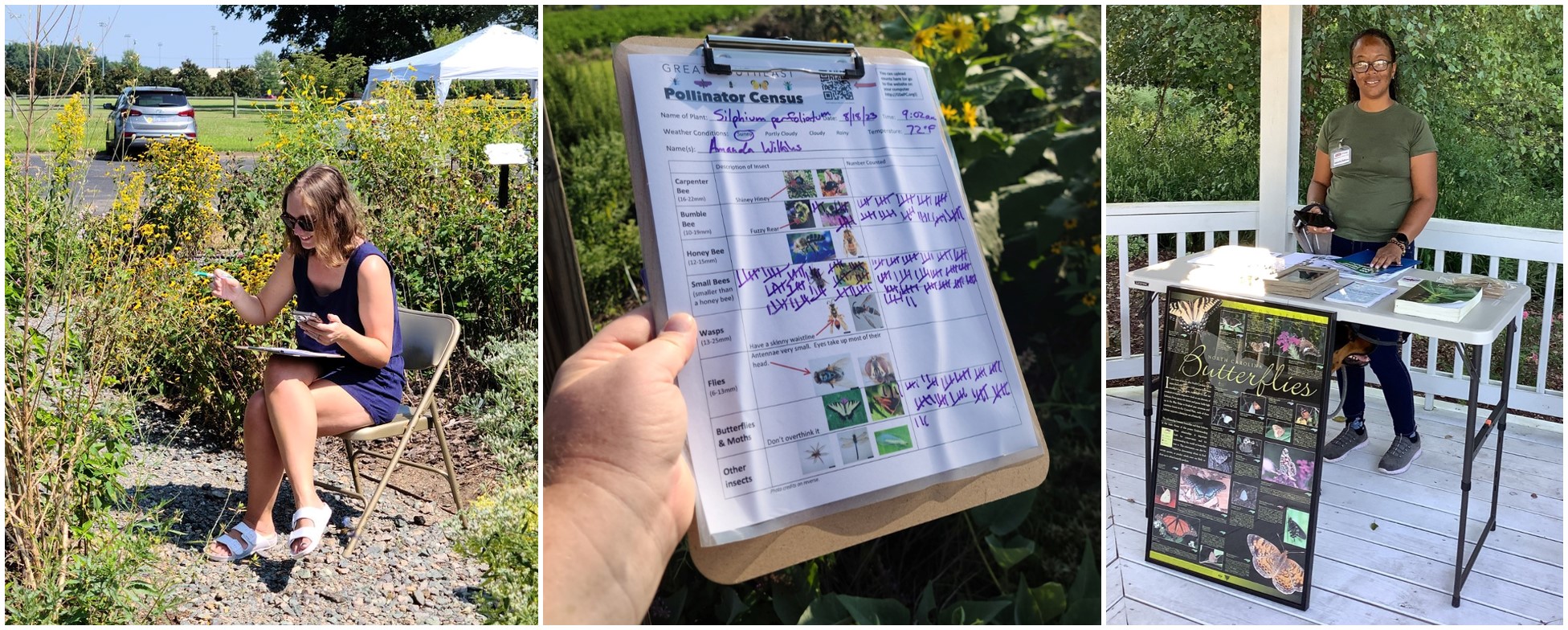
Across NC, Extension Master Gardener volunteers took part in our state’s first GSEPC.
NC State Extension Master Gardener℠ volunteers help protect our food supply and ecosystems by educating North Carolinians on pollinator conservation through classes and workshops, educational materials and outreach, and demonstration gardens. Now, they have a new way to help protect pollinators and encourage others to get involved.
The Great Southeast Pollinator Census (GSEPC) is a citizen science project that invites community members of all ages to observe and count pollinator activity in their yards and neighborhoods. The annual, two-day event aims to collect data on pollinator population levels and species range, educate people on the importance of pollinators, and inspire participants to take action to protect pollinators.
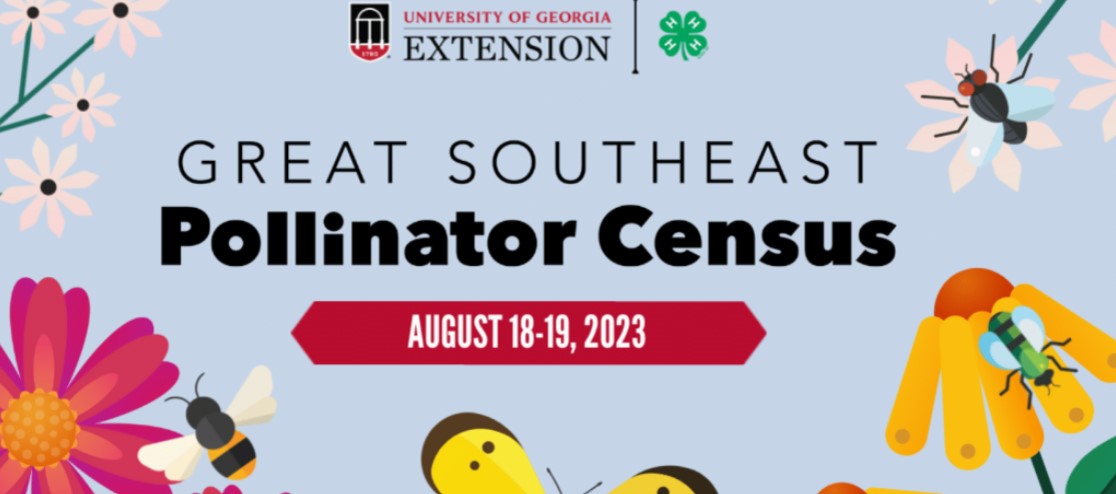
The GSEPC was established by University of Georgia Extension specialist Becky Griffin and has been held in Georgia since 2017. Now it is spreading, with South Carolina joining the count in 2022, and North Carolina in 2023.
Across North Carolina, Extension Master Gardener volunteers embraced the opportunity to establish the census in our state. More than 200 volunteers in 39 counties observed and counted pollinators in local parks, public gardens, home gardens, and other green spaces during the August 18-19, 2023 census.
In addition to counting pollinators in their own gardens, volunteers in several counties held events at Extension centers, demonstration gardens, and farmers markets that engaged youth and adults in the census and taught them about pollinator conservation. Here are some examples:
- Lee County – Counting events took place at the Pollinator Haven Demonstration Garden and the farmers’ market in Sanford.
- Harnett County – Volunteers hosted events at Raven Rock State Park and the N.C. Cooperative Extension Center in Lillington.
- Onslow County – Volunteers held a counting event in the Discovery Gardens located at the N.C. Cooperative Extension Center in Jacksonville.
- Surry County – Extension partnered with the local library and garden club to hold a counting event in Mt. Airy.
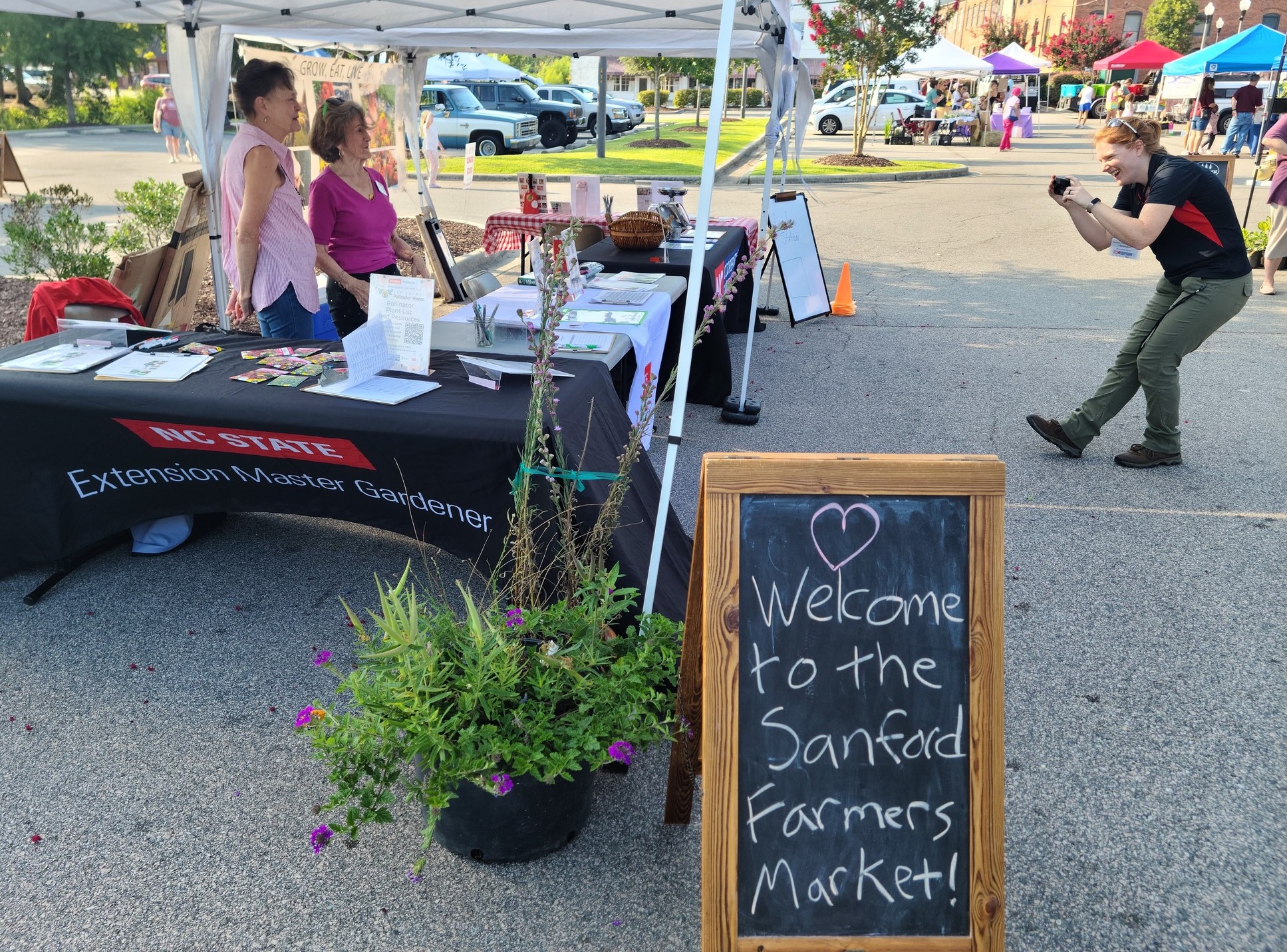
Extension Master Gardener volunteers pose for a picture at their Sanford Farmers Market booth promoting the GSEPC.
Across Georgia, South Carolina, and North Carolina, 210 counties were represented in the 2023 census, with 12,293 counts reported and 253,443 insect visits counted! Approximately 70% of participants said that being a part of the census changed their understanding of the benefits provided by insects that visit their gardens.
Amanda Wilkins, a horticulture agent with N.C. Cooperative Extension in Lee County, was part of a team of Extension experts from NC State and N.C. A&T State University responsible for bringing the pollinator census to North Carolina. Following the inaugural event, Amanda shared, “I was very pleased with the participation from North Carolina, especially considering 2023 was the first year it has ever been in our state! I was so proud of the Extension Master Gardener volunteers across North Carolina owning the program and using it as a way to engage with their local communities about pollinator conservation in unique ways.”
North Carolinians’ participation in the 2023 census was crucial in providing important data on pollinator population trends in our state that can be used to develop conservation strategies to protect these critical species.
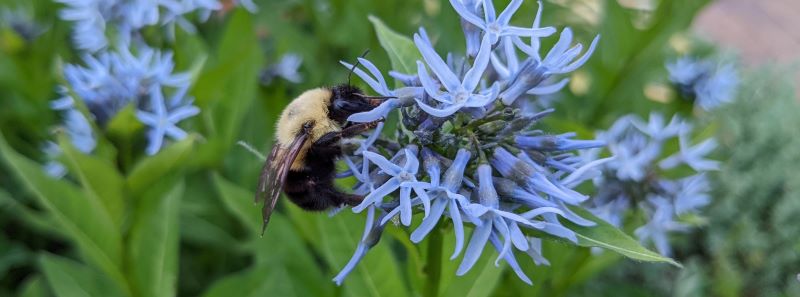
North Carolina is home to around 500 native bee species, including this unknown species visiting blue star (Amsonia tabernaemontana).
Insect pollinators counted as part of the census include honey bees, bumble bees, carpenter and other bees, as well as butterflies, moths, wasps, and flies. Explore results from the 2023 census and past years.
If you weren’t able to participate in 2023, don’t worry, the Great Southeast Pollinator Census will return in 2024 on Friday, August 23, and Saturday, August 24. Contact your local N.C. Cooperative Extension center to learn if census events are planned in your area.
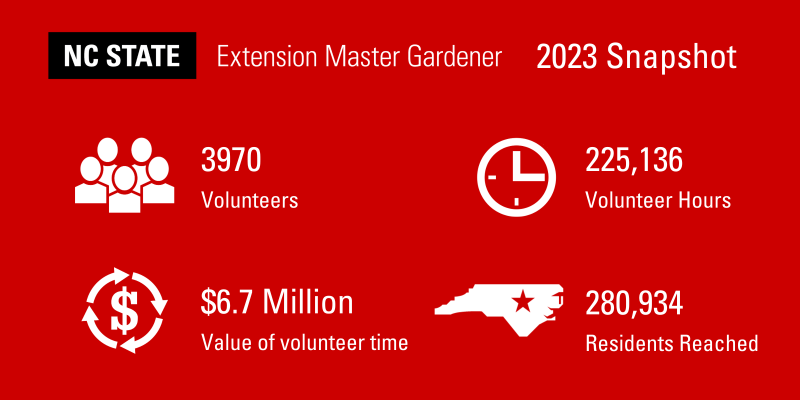
The NC State Extension Master Gardener℠ program is a statewide network of volunteers and Extension educators working in N.C. Cooperative Extension county centers and on NC State campus. Through education and outreach, we connect people with the benefits of gardening and empower North Carolinians to cultivate healthy plants, landscapes, ecosystems, and communities.
Explore stories from our 2023 Annual Report, which celebrates our work to help North Carolinians improve their lives and grow our state.
Join, support, or connect with Extension Master Gardener volunteers in your community.


